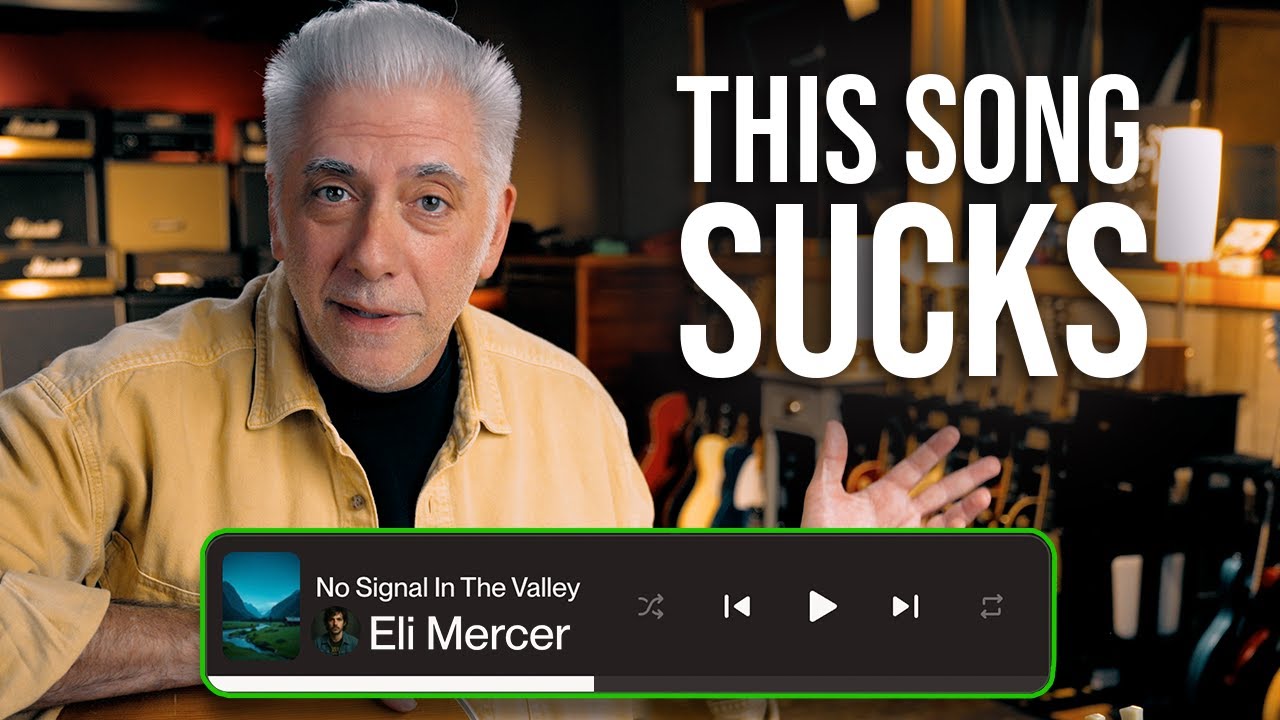The video critiques the rise of AI-generated music by demonstrating how easily AI can create songs without genuine human creativity, using a fictional artist as an example. It warns that platforms like Spotify monetizing such content undermines authentic musicianship and calls for stricter regulation to preserve artistic integrity in the music industry.
In this video, the creator expresses frustration with the rise of AI-generated music, using a fictional indie rock artist named Eli Mercer as an example. The artist and his music were entirely created using AI programs, specifically Suno for music generation and Claude for lyric writing. The creator demonstrates how easy it is to produce full-length songs with AI by generating lyrics about a college student dropping out to pursue a dream in West Texas and then turning those lyrics into two different songs with distinct tempos and styles. Despite the songs sounding somewhat decent, the creator emphasizes that he had no real creative input beyond providing basic prompts.
The video continues with the creator generating another song titled “No Signal in the Valley,” which explores themes of digital detox and self-discovery. Again, the AI produces two versions of the song using the same lyrics, showcasing the versatility and efficiency of AI in music creation. The creator points out that he did not write the music or perform it; instead, the AI synthesized the vocals and instrumentation based on the prompts he provided. This process highlights how AI can replicate musical styles and generate content quickly without the need for years of musical training or songwriting experience.
A key argument made in the video is that AI-generated music is not truly creative but rather a remix or prediction based on existing works by human artists. The creator stresses that while AI can produce many iterations of songs, it lacks genuine artistry and originality. He suggests that relying on AI to create music diminishes the value of musicianship and songwriting skills, as the AI essentially repurposes other people’s ideas rather than creating something new. This raises concerns about the authenticity and artistic merit of AI-generated music.
The creator also criticizes platforms like Spotify for allowing AI-generated music to be monetized and included in playlists without proper regulation. He argues that Spotify should not pay royalties for these AI-created songs since they do not represent genuine human creativity. The video mentions that YouTube has recently implemented rules preventing monetization of fully AI-generated content, implying that Spotify should follow suit to maintain the integrity of the music industry. The creator expresses disappointment that Spotify appears to be ignoring these issues and may even be using AI-generated music themselves to fill playlists.
In conclusion, the video serves as a cautionary commentary on the growing presence of AI in music creation. While acknowledging the technological advancements, the creator warns against equating AI-generated songs with authentic musical artistry. He invites viewers to share their opinions on the matter and emphasizes the importance of preserving human creativity in music. Ultimately, the video challenges the music industry and streaming platforms to reconsider how they handle AI-generated content to protect the value of genuine musicianship.
